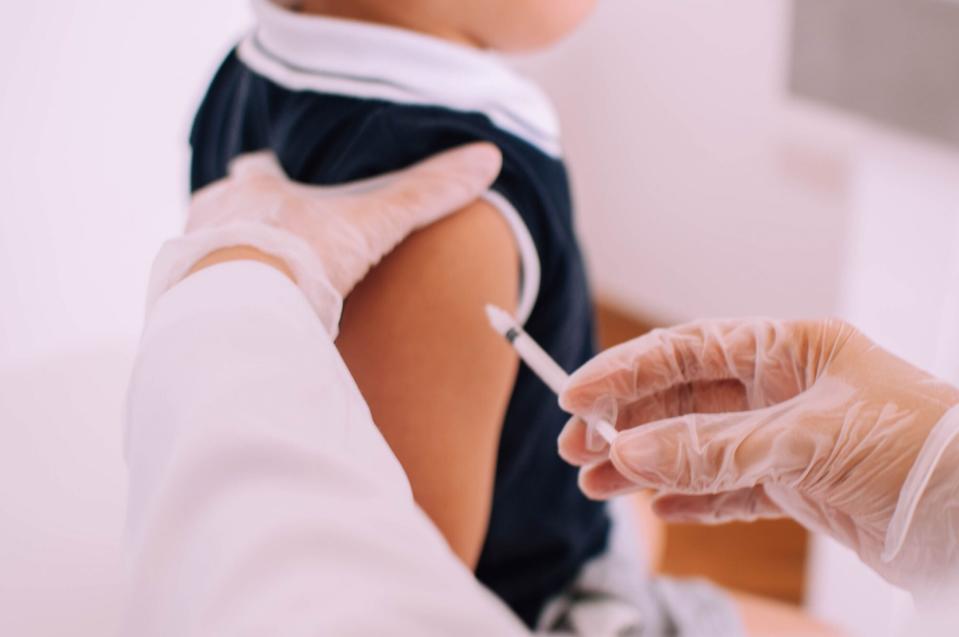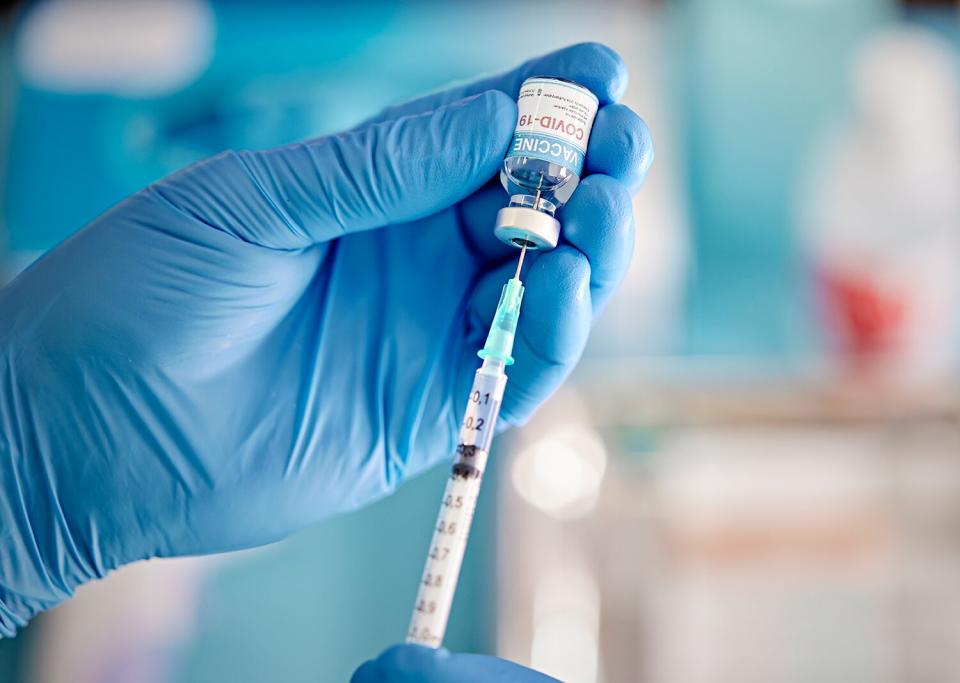Pfizer's 3-Dose COVID Vaccine Is 80% Effective in Kids Under 5

Getty A child receiving a vaccine
A third dose of the Pfizer and BioNTech COVID-19 vaccine was found to "elicit a strong immune response" for children under 5 years old, according to new data released by the company Monday.
A preliminary analysis from Pfizer revealed that the COVID vaccine for children 6 months to under 5 years old has an efficacy of 80.3%, which meets "all immunobridging criteria for emergency use authorization." Children under 5 are the only group in the U.S. not yet eligible for COVID-19 vaccination.
The company noted that out of 1,678 children who were given three doses, just 10 COVID-19 cases were diagnosed as of April 29. Pfizer will submit finalized data of its effectiveness after having at least 21 cases.
"The study suggests that a low 3-microgram dose of our vaccine, carefully selected based on tolerability data, provides young children with a high level of protection against the recent COVID-19 strains," Dr. Ugur Sahin, CEO and co-founder of BioNTech, said in a statement. "We are preparing the relevant documents and expect completing the submission process to the FDA this week, with submissions to EMA and other regulatory agencies to follow within the coming weeks."
Never miss a story — sign up for PEOPLE's free daily newsletter to stay up-to-date on the best of what PEOPLE has to offer, from juicy celebrity news to compelling human interest stories.

Getty Vaccine
RELATED: FDA Unlikely to Approve COVID Vaccine for Kids Under 5 Until June: Report
Pfizer and BioNTech announced in December that a two-dose regimen did not elicit enough of an immune response in some children under 5, prompting their study of a third dose.
At the time, the companies reported that the two-dose vaccine was effective in children under age 2, similar to those in the 16-24 age bracket. However, children ages 2 through 5 generally did not have the same response.
Last month, multiple sources told Politico that it could be June before the FDA authorizes a COVID vaccine for children under five years old. The outlet added that delays are being attributed to regulators who want to promote two vaccines at the same time instead of pushing one out before the other.
Vaccine advocates are encouraging the administration to act sooner rather than later.
Colorado Gov. Jared Polis wrote a letter calling on the Biden administration to step up efforts to get authorization for vaccines for the country's youngest population.
"Hospitalization rates for children under 5 were the highest ever during the omicron surge. While children younger than 5 are less vulnerable to SARS-CoV-2 than adults, they can still experience severe and lasting outcomes," Polis said in the letter. "Delays and lack of urgency from the FDA and vaccine developers in authorizing a vaccine for children under 5 are concerning."
The Centers for Disease Control and Prevention first approved the Pfizer-BioNTech vaccine for emergency use in children ages 12 to 15 back in May 2021. The vaccine received the same approval for children ages 5 to 11 six months later in November.

 Yahoo Finance
Yahoo Finance 